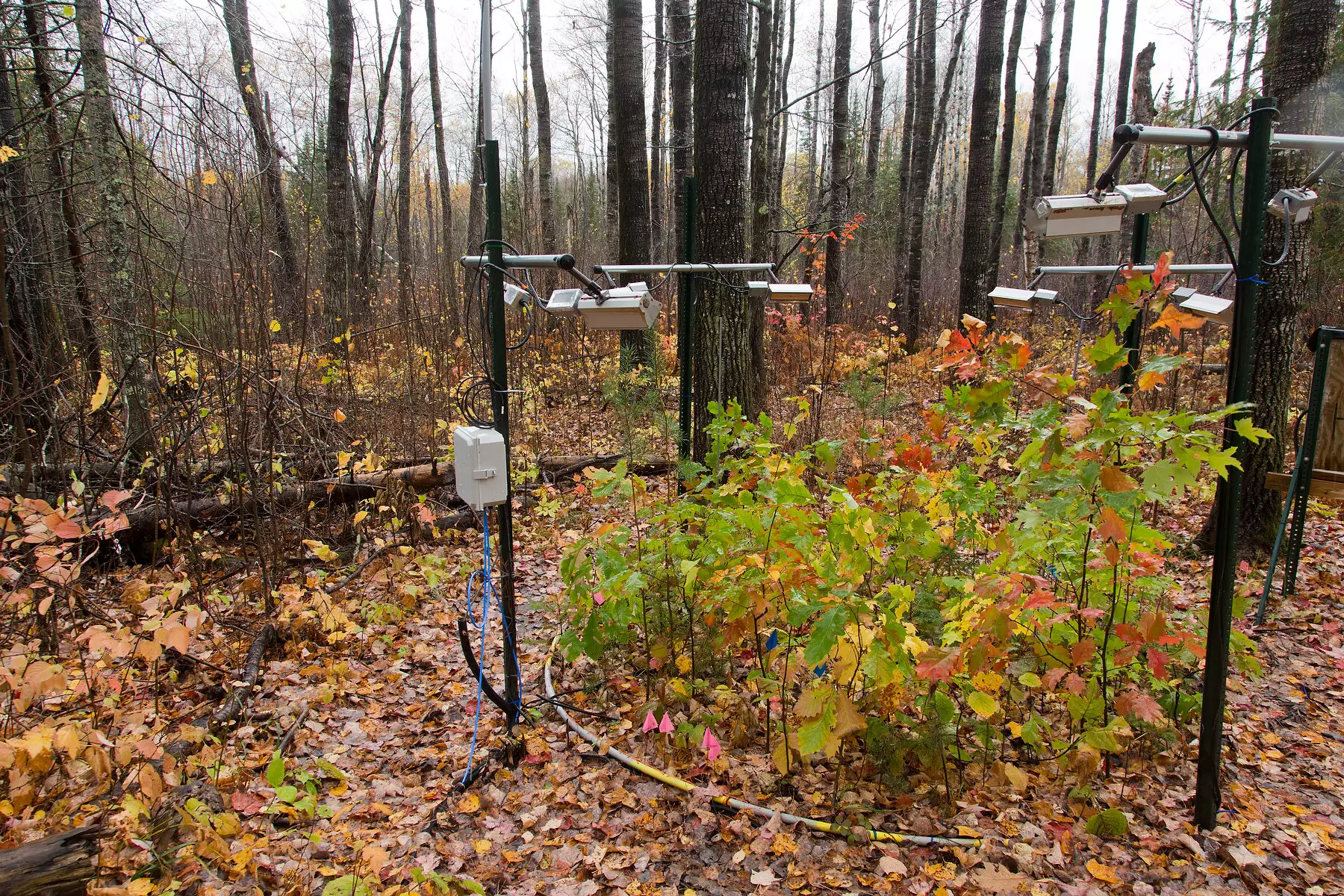The issue of escaping carbon in northern forests due to rising temperatures is a serious concern that has been brought to light by a unique experiment led by Peter Reich of the University of Michigan. The study, recently published in Nature Geoscience, showed that more carbon is escaping the soil than is being added by plants in a warming planet scenario. This is alarming news as it suggests that as the world warms, soils will give back some of their carbon to the atmosphere. This new insight indicates that losing more carbon is a negative factor for the climate, which can have profound impacts on our planet.
Forests play a crucial role in storing roughly 40% of the Earth’s soil carbon. As a result, many research projects have focused on understanding how climate change affects the carbon flux from forest soils. However, most studies have been limited to short durations and have not considered both soil and above-ground warming simultaneously. Reich’s experiment stands out as unique and groundbreaking in this aspect as it controlled both soil and above-ground temperatures in open air conditions without enclosures, providing a more realistic scenario for studying the carbon flux.
The research conducted by the team involved two sites in northern Minnesota, with a total of 72 plots, investigating two different warming scenarios compared to ambient conditions. The results showed that soil respiration, the process releasing carbon dioxide, increased by 7% in the more modest warming case and by 17% in the more extreme case. The escaped carbon dioxide comes from the metabolism of plant roots and soil microbes, which feed on carbon-containing substances such as sugars, starches, soil organic matter, and microorganisms. Despite the increase in respired carbon dioxide in warmer plots, the researchers found that soil moisture constraints influenced the amount, with drier soil conditions limiting respiration. This indicates that forests are likely to lose more carbon as temperatures rise, posing a significant challenge in terms of climate change mitigation efforts.
Understanding how rising temperatures affect the flow of carbon into and out of soils is essential for forecasting changes in our planet’s climate. The experiment led by Reich sheds light on the complex interactions between soil, plants, and climate, providing valuable insights into the mechanisms underlying carbon flux in forest ecosystems. The findings highlight the need for further research and proactive measures to address the issue of escaping carbon in northern forests.
The study led by Peter Reich and his team at the University of Michigan has uncovered important revelations about the impact of rising temperatures on carbon escape in northern forests. The findings underscore the urgent need for concerted efforts to mitigate climate change and preserve the delicate balance of carbon cycling in forest ecosystems. Through continued research and awareness, we can work towards a more sustainable future for our planet and its precious natural resources.


Leave a Reply